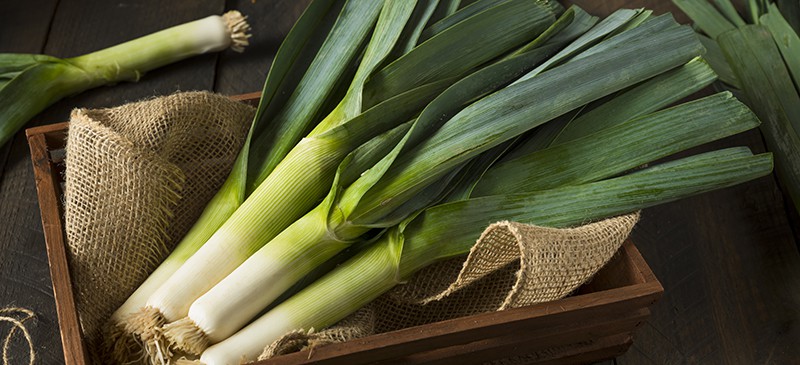Over the next few weeks at Arthur’s Farm Kitchen and in the Farm Shop we will be celebrating the humble leek.
Alongside garlic, onions, shallots and chives, Leeks come from the edible vegetable species Allium, which form part of the larger family of Amaryllidaceae. Species of the Amaryllidaceae family all generally have the characteristics of bulbs or stems underground and includes non-edibles such daffodils and snowdrops.
It’s thought that the origin of the leek dates back to Egyptians, the Ancient Greeks and the Romans, who are likely to have introduced it into Great Britain. The reason why the leek became the national emblem for Wales is not certain, but it’s believed that Wales’s patron St, David advised the army to wear a leek in their cap to identify themselves from the enemy on the eve of a battle with the Saxons.
The leek is widely available, easy to grow and can be picked up in most local farm shops, grocers, and supermarkets. It is a modest yet incredibly versatile, nutrient rich food.
Leeks are jam-packed with antioxidants and vitamins. They are a fantastic source of Vitamins A, K and C as well as folate and fibre. They also contain high levels of flavonoids which are a group of compounds that naturally occur in many vegetables and nuts. Flavonoids help our bodies function more efficiently while protecting it against everyday toxins and stressors. Leeks fall into the Flavanols subgroup which are best known for their antioxidant properties and for supporting a healthy cardiovascular system.
As they are also high in dietary fibre, making them an important addition to any diet as fibre is essential for a healthy gut. The prebiotics found in leeks help to feed our good gut bacteria, reduce inflammation in the digestive system and may also help our bodies to better absorb the important nutrients mentioned above.
As well as having antioxidant properties, leeks (alongside other allium species) have also been shown to have antibacterial benefits as they contain an organosulfur compound called allicin. These compounds are believed to be helpful in preventing the development of some diseases such as diabetes & liver disease, and allergies, as well as supporting healthy immune & cardiovascular systems.
Top tip – Leeks and other allium vegetables release allicin when their tissue is damaged. When you chop or crush leeks, onions or garlic you’re getting the most of those health-promoting organosulfur compounds mentioned above. Leaving then chopped or crushed for around 10 minutes before cooking further intensifies the allicin release before heating.
Top top tip 😊. Saute a chopped leek in some butter and whizz it together in a blender with a homemade cheese sauce for extra flavour, nutritional value and as a sneaky way of adding it to children’s meals.
Kate Bevan Wood Dip CNM, mBANT, CNHC
Registered Nutritional Therapist and Resident Nutritional Therapist at Fordhall Farm.

